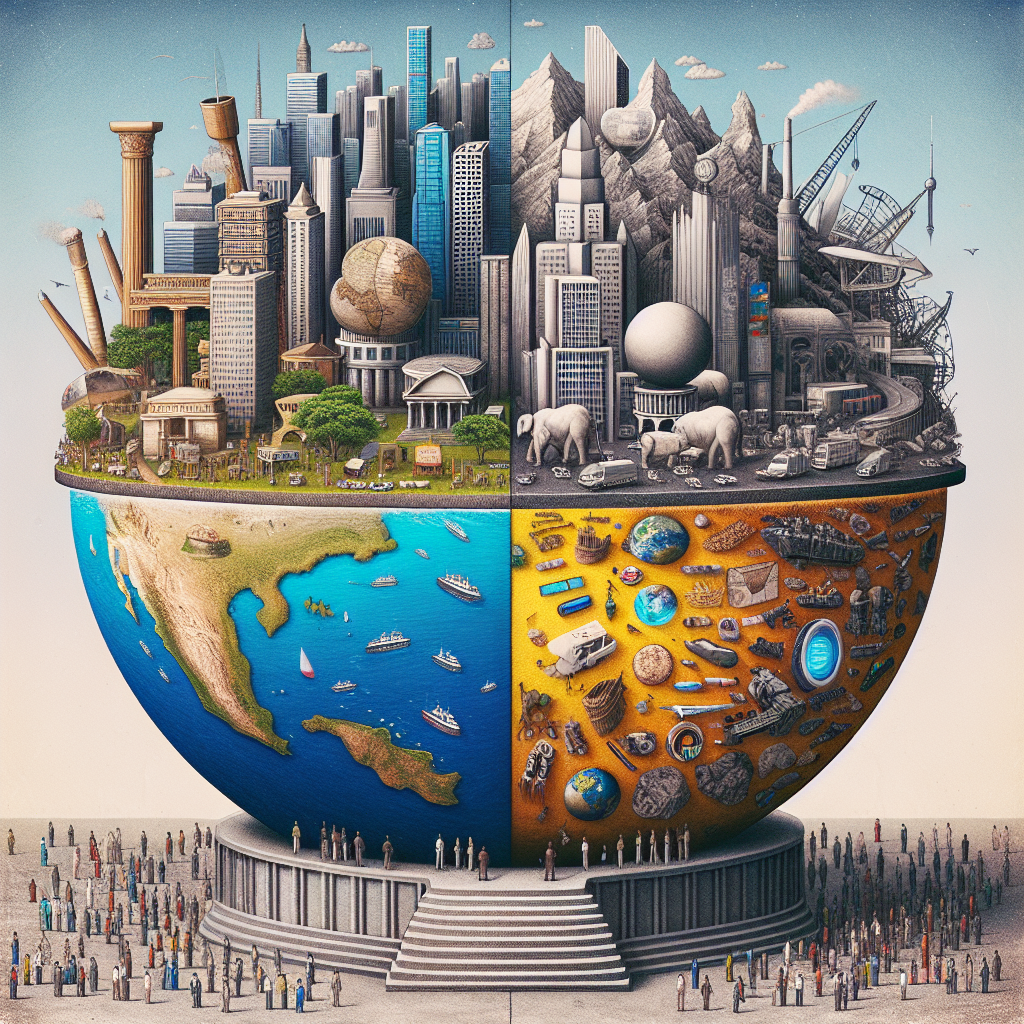Mainstream Western politics and culture often operate under a perspective that narrows their focus to US-aligned countries, effectively ignoring much of the global landscape. This attitude becomes strikingly apparent during events like US presidential election seasons, where mere minutes are devoted to discussing foreign policy, while the bulk of time is spent on domestic issues. This prioritization reflects a worldview centered on American concerns, revealing a disconnect from the far-reaching consequences of US foreign policies, which can lead to significant human suffering across the globe. Unlike the American focus on personal convenience and immediate impact, international perspectives often stress the implications for military alliances and global trade. This divergence indicates a troubling ignorance within Western discourse about the broader ramifications of their political decisions, including geopolitical violence and economic sanctions that systematically oppress millions in the Global South.
The notion of “international community” as portrayed by Western officials typically encompasses a narrow coalition of allied nations, such as those in North America, Europe, and a few compliant Asian states, while omitting the majority of the global population. This selective engagement fosters an illusion that the voices and struggles of billions in the Global South are non-existent. Such limited acknowledgment perpetuates a culture of disregard, affecting not only political discourse but also everyday cultural expressions, including media and entertainment. These narratives rarely confront the exploitative dynamics that underpin the lifestyles of those in the Global North, omitting the inequalities rooted in historical imperialism and resource extraction. This cognitive dissonance illustrates a broader societal failure to connect the dots between Western lifestyles and the often hidden costs borne by marginalized populations worldwide.
Living in such a fragmented mental universe allows for a superficial examination of global interconnectedness, resulting in an unsettling blindness to the injustices faced by those outside the Western bubble. The lives of individuals in regions like Africa or Asia are, in many cases, intertwined with the consumer habits and technological comforts of the Global North, yet they remain largely absent from collective consciousness. This exclusion can foster a sense of complacency among Western audiences, who navigate daily life unaware of the global economic and social structures that support their existence. In neglecting to recognize the significant contributions of individuals from the Global South, Western citizens risk perpetuating a worldview that prioritizes their experiences over the collective human reality.
A transformation in mindset is necessary for fostering a more holistic understanding of humanity and enabling the creation of a healthier world. The process of becoming more conscious and empathetic toward others worldwide involves acknowledging the legitimate needs and struggles of individuals across continents, rather than maintaining a Eurocentric perspective that marginalizes entire populations. This cognitive shift will necessitate a collective reckoning with the impacts of historical injustices and current systems of exploitation. Without this awareness, society remains entrenched in a metaphorical dinner party where the imbalance of power and privilege goes unaddressed, echoing the relationships of subjugation that have characterized human history for far too long.
Recognizing the interconnectedness of global experiences stands as a pivotal step towards constructive dialogue and collaboration across borders. By fostering an understanding of shared humanity, Western societies can strive to create conditions that not only uplift their own citizens but also promote respect and support for the aspirations of those around the world. It involves not merely a change in rhetoric but also a commitment to addressing systemic inequities and injustices that persist within global frameworks. Until a collective shift occurs in how we perceive and engage with the world, the inherent dysfunction within these relationships will continue to perpetuate feelings of discontent and injustice among those impacted by such dynamics.
Ultimately, the challenge lies in reshaping our cultural narratives and political engagements to be more inclusive and representative of global realities. This evolution entails a conscious effort to dismantle the barriers that separate us from recognizing the worth and dignity of all individuals, regardless of their geographic or socioeconomic circumstances. Until this perspective becomes a mainstream tenet of Western discourse, society will remain mired in a state of dysfunction and insensitivity, failing to appreciate the rich tapestry of human experience that extends well beyond the borders of Western civilization. Embracing a truly global perspective, one that respects and acknowledges the voices of the Global South, will be essential for building a more just and interconnected world.

